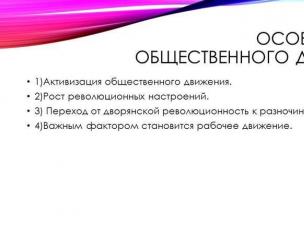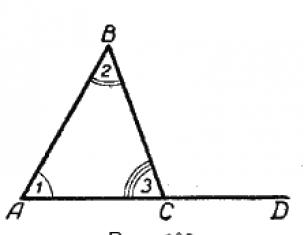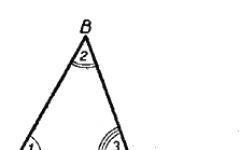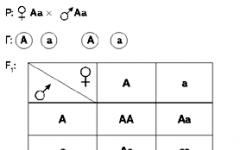She was sitting on the floor
And I sorted through a pile of letters,
And, like cooled ash,
She picked them up and threw them away.
I took familiar sheets
And I looked at them so wonderfully,
How souls look from above
On an abandoned body...
Oh, how much life there was here,
Irreversibly experienced!
Oh, how many sad moments
Love and joy killed!..
I stood silently on the sidelines
And I was ready to fall on my knees, -
And I felt terribly sad,
As from the inherent sweet shadow.
One of my favorite poems by F.I. Tyutchev “She was sitting on the floor...” was written in 1858.
The 1850s were a time of dramatic experiences associated with Tyutchev’s love for E. A. Denisyeva, a young student of the Smolny Institute, where the poet’s two daughters were studying at that time. Their romance, which society knew about, lasted 14 years and ended with the girl’s death.
However, the poet dedicated this poem not to young Denisyeva, but to his second wife, Ernestine von Dörnberg. The woman knew about her husband’s affair and, of course, felt indescribable bitterness from this.
She was sitting on the floor
And I sorted through a pile of letters...
I believe that the main image of the poem is the image of this pile of letters. These letters are like yellowed autumn leaves that only stir up the soul with memories of the past. They are nothing more than “cooled ash” left over from the flame of the former feeling.
I took familiar sheets
And I looked at them so strangely...
The lyrical heroine rereads these letters with surprise. She remembers, but no longer understands those vivid feelings that she experienced earlier. These letters are her past. Not even her, but that young woman who looks “from above” at her current self.
However, the heroine is unable to discard the memories. And how? She loved and suffered. Is it possible to leave this behind? After all, “how much life was here,... how many sad moments, love and joy of the murdered...”
But, as the poet correctly notes, all feelings between these people have already been irrevocably experienced. The lyrical hero understands this. But he, standing “silently, on the sidelines” and watching this woman, “was ready to fall to his knees.” For what? For what? To ask for forgiveness? Or to share the bitterness of memories of the past? He is ready to be there at this moment, she just needs to give him a sign. But there is no sign, and the hero leaves the woman alone, allowing her to live these minutes alone.
For me, the poem “She was sitting on the floor...” is the pinnacle of F.I.’s creative genius. Tyutcheva. Probably someone will disagree with me, but the sincerity of these lines will not leave anyone indifferent.
* * *
She was sitting on the floor
And I sorted through a pile of letters -
And, like cooled ash,
She took them in her hands and threw them -
I took familiar sheets
And she looked at them so wonderfully -
How souls look from above
The body thrown on them...
Oh, how much life there was here,
Irreversibly experienced!
Oh, how many sad moments
Love and joy killed!..
I stood silently on the sidelines
And I was ready to fall on my knees, -
And I felt scared and sad,
As from the inherent sweet shadow
She was sitting on the floor
sorting letters which were old,
holding them before she threw them out
like ash gone cold.
Her look was strange
while she held those pages she knew so well,
as if she were a soul which peered down
at its abandoned shell.
So many irreversible events
such life fulfilled and filled
with minutes of love and joy across the years!
How many grief-packed minutes killed!
Silent, I stood to one side
and my knees were ready to bend
as a fearful sadness crept into my heart,
as if at the ghost of a dear, old friend!
She sat upon the floor
Looking through a pile of letters,
She took them up and tossed them
Like so many cold ashes.
She took the familiar pages
And gazed at them strangely,
The way souls look from above
At their discarded bodies. . .
O, how much life was in them,
Life irrevocably lived!
Oh, how many bitter moments
How much love and joy is now dead! . . .
I stood silently aside
Ready to fall on my knees,
And I grew terribly sad,
As if in the presence of a dear ghost
Ona siedziała na posadzce
I stosy listów przeglądała,
I jak popiołu zimne garście
Brała je do rąk i rzucała.
Brała po jednym z listów stosu
I dziwnie na nie tak patrzyła,
Jak dusza patrzy tam z niebiosów
Na dało, które porzuciła.
O, ileż życia, who is political -
Niepowracalnie przeżytego,
O, ileż było tu goryczy,
Miłości, szczęścia straconego!
A ja milcząco z boku stałem,
I strach i smutek mnie ogarnął,
I na kolana upaść chciałem,
Jakbym zobaczył drogą zmarłą.
Na podu tu je čepila
I stara pisma prebirala,
Te poput hladna pepela
Kroz prste bi joj samo pala.
List poznat uzme, uzdiše,
I promatra ga zatečeno
Ko duša, kad se uzdiže
I gleda napušteno tijelo...
O, koliko života tu
Bje nepovratno proživljeno!
O, koliko nad ljubavlju
Je mrtvom suza proliveno!..
Postrance ja sam stajao
I kleknuo bih istog trena,
Tugovao i zdvajao
Pred tim što sad je draga sjena.
A padlón ült, körötte nagy
halom level - azt válogatta,
hamuvá hült írásokat:
ezt olvasta, azt félredobta.
Felvett egy-egy képeslapot,
s megdermedt a csodálkozástól:
lelkek néznek így elhagyott
testükre az ég magasából.
Mily élet volt ez valaha,
Yes nem jön vissza soha többet!
Hány szomorú pillanata
megölt szerelemnek s örömnek!
Mellette álltam, csüggeteg,
némán, es majdnem térdre esve -
s elkomorodtam, mintha egy
kedves árny állt volna helyemre.
F. Tyutchev's love lyrics should be read in the context of the poet's biography; intimate poems are the key to his soul and most intimate experiences. The poem discussed in the article is studied in 10th grade. We invite you to familiarize yourself with brief analysis“She was sitting on the floor” according to plan.
Brief Analysis
History of creation- the work was written in 1858, at a time when the poet’s heart was torn between two women - Elena Deniseva and his wife Ernestina. The lines are dedicated to Ernestine.
Theme of the poem– a woman’s suffering from unhappy love.
Composition– the poem is written in the form of a monologue of a lyrical hero observing the suffering of a woman. In terms of meaning, the work is divided into several parts: a description of a woman with letters, a story about the letters, a reproduction of the feelings experienced by the lyrical hero.
Genre- elegy.
Poetic size – iambic tetrameter, cross rhyme ABAB.
Metaphors – "love and joy of the murdered", « souls look from above at the body they abandoned.”
Epithets – "familiar sheets", "sorrowful moments".
Comparisons – “I took them in my hands like cooled ashes,” “I looked at them like souls look from above at the body they abandoned,” “I felt terribly sad, as if from an inherent sweet shadow.”
History of creation
The history of the creation of the work is connected with the poet’s love for a young girl Elena Deniseva. They met in 1849. Elena was 23 years younger than Tyutchev, but age did not become an obstacle to the development of strong feelings. Elena found out that she was expecting a child. It was no longer possible to hide the relationship. The couple endured condemnation from society, but the love between Tyutchev and Denisyeva did not fade for 14 years - until Elena’s death.
Eleanor Tyutcheva had a hard time experiencing her husband’s betrayal. Emotions overwhelmed the woman; during such emotional distress, she destroyed letters once written by her husband. They also contained love poems, which were forever scattered with ashes. Tyutchev once saw a picture of the destruction of letters. She remained forever in his memory. In 1858, the analyzed poem was written. The one to whom the work is dedicated turned out to be a woman who had the rare ability to forgive. After Denisyeva’s death, Tyutchev returned to the family, Eleanor accepted her beloved man.
Subject
The poet reveals the theme of unhappy love. The scene described in the analyzed work is not new for Russian literature; its peculiarity is that it was snatched from life. The author's attention is drawn not so much to events as to the emotions and feelings of the characters.
In the center of the poem are two images - a woman who burns letters and her lover observing this sad picture. The beloved is a lyrical hero.
At the beginning of the work, it tells about a woman who was sorting through letters. The heroine looked at them unusually, realizing that there was no way to return to the past. We don’t yet know who wrote the lines; the author lifts the curtain on this mystery in the fourth quatrain. In it, the reader learns that the woman was holding love messages in her hands. The correspondence apparently went on for quite a long time, as evidenced by the lines: “Oh, how much life was here, irrevocably experienced.”
Finally, in the last quatrain the image of the beloved appears. These lines are written in the first person, so the author shows who watched the bitter parting with love. The man admits that he did not dare to approach to a loved one, try to calm him down, even though he was “ready to fall to his knees.” At that moment he felt only terrible sadness.
Composition
The analyzed work is a monologue-memoir of a lyrical hero who witnessed how his beloved burned letters. Analysis of the poem according to its meaning allows us to divide it into several parts: a description of a woman with letters, a story about the letters, a reproduction of the feelings experienced by the lyrical hero. Formally, the poem consists of four quatrains.
Genre
The genre of the poem is elegy, since lyrical hero talks with sadness about his experience. The poetic meter is iambic tetrameter. F. Tyutchev used cross ABAB rhyme.
Means of expression
The poet does not oversaturate the work with means of expressiveness, so they cannot be found in every verse. However, tropes help to develop the theme and show the feelings and emotions of the characters.
The text contains metaphors- “love and joy of the murdered”, “souls look from above at the body they abandoned”; epithets- “familiar sheets”, “sorrowful moments”; comparisons- “like cooled ashes, I took them in my hands”, “I looked at them like souls look from above at the body they abandoned”, “I felt terribly sad, as if from an inherent sweet shadow.”
The emotions of the lyrical hero are emphasized with the help of intonation. In the third stanza, where he is overwhelmed by a wave of memories, the author uses rhetorical exclamations.
Analysis of the poem “She was sitting on the floor” by F.I. Tyutchev.
The poem was written in 1858; addressed, presumably, to Tyutchev’s second wife Ernestina Fedorovna. After the first reading, you can feel the sad mood permeating the work. As in all of Tyutchev’s love lyrics, love here appears not as a superficial passion, but as a deep feeling that can both give a person the greatest happiness and destroy him.
In the first stanza we see a woman in front of us. She sits silently on the floor, but she doesn't need to speak. All her inner experiences are clear to the reader from her movements. “She was sitting on the floor,” and she sits not because of fatigue, but because of the feelings that overwhelm her in this moment; Now she just can't stand. She picks up the letters and “throws” them “like cooled ash.” The fact is that her life seems to her just as “cooled down”; the fire went out, and these letters remind her of this fire. That's why she can't hold them in her hands.
The second stanza continues the idea implied by the author in the first. Tyutchev again uses comparison as a means of expression. The woman looks at the letters “as souls look from above at the body they abandoned.” These letters represent part of her life. This part has died, it cannot be returned, and therefore she can only look at them, remembering everything that is written in them.
In the third stanza, the whole tragedy of the situation of the lyrical heroes is visible, which for F. Tyutchev is always inseparable from love. Here we see regret (“irretrievably experienced”) that such an unhappy ending awaits this love, and an understanding that there simply cannot be another outcome. Love and joy are “killed”, and the dead are not resurrected.
In the fourth stanza, the hero is also silent, but this is the other side, another participant in this love. He is ready to “fall to his knees,” to obey, but this readiness is only within him, because in his heart he understands that this love is lost and it is impossible to return it. “An inherent sweet shadow,” the author uses a periphrasis to again recall the love that he experienced, which will always be a bright memory for him; but which passed.
In the poem, love appears as something fatal. This is a force that can lift us from the ground, but at the same time drop us mercilessly to the ground. This is a tragedy, the outcome of which is predetermined, which, however, does not prevent it from being the greatest feeling in human life.
“She was sitting on the floor”
She was sitting on the floor
And I sorted through a pile of letters -
And, like cooled ash,
She took them in her hands and threw them away -
I took familiar sheets
And she looked at them so wonderfully -
How souls look from above
The body thrown on them:
Oh, how much life there was here;
Irreversibly experienced!
Oh, how many sad moments
Love and joy killed!..
I stood silently on the sidelines
And I was ready to fall on my knees, -
And I felt scared and sad,
As from the inherent sweet shadow.
The basis of Tyutchev's love lyrics lay down own relationships, emotional searches, throwing and experiences, morality and immorality. The poet poured out all his emotional impulses onto paper, and he had something to say. In his poems one can find repentance, pangs of conscience, and regret. A talented man, Fyodor Ivanovich, could even wrap tragedy in an exquisite literary wrapper.
The poem “She was sitting on the floor...” can be considered such an example of romantic lyrics. This is a real brilliant phenomenon of Russian poetry, as Nikolai Nekrasov said.
The history of the creation of Tyutchev’s poem “She was sitting on the floor...”

This poetic creation was written by Tyutchev already in adulthood. By this time, the diplomat had a position in society, he was known as a decent family man, and respected as a high-ranking official. The man was 47 years old.
At this time, a new feeling, unexpected love, bursts into his life. He falls in love with Elena Denisyeva, who was barely twenty-four years old.
 It soon became clear that not only the poet had ardent and tender feelings for Elena Deniseva, he was also loved. Between the two completely different people both in age and in their views, a whirlwind romance breaks out, which ultimately led to Elena’s pregnancy. It was no longer possible to hide it, and society will know what happened. Everyone discusses Tyutchev’s personal life and condemns him. This scandal in society reached his family. Soon his wife finds out about his relationship on the side. Eleanor accepts her husband's betrayal very painfully and tragically. In an emotional outburst, she begins to destroy her husband’s letters that he once wrote. They contained poems that were dedicated only to her and were unknown to the world. Thus, most of the correspondence was destroyed. Unfortunately, these Tyutchev creations were never restored.
It soon became clear that not only the poet had ardent and tender feelings for Elena Deniseva, he was also loved. Between the two completely different people both in age and in their views, a whirlwind romance breaks out, which ultimately led to Elena’s pregnancy. It was no longer possible to hide it, and society will know what happened. Everyone discusses Tyutchev’s personal life and condemns him. This scandal in society reached his family. Soon his wife finds out about his relationship on the side. Eleanor accepts her husband's betrayal very painfully and tragically. In an emotional outburst, she begins to destroy her husband’s letters that he once wrote. They contained poems that were dedicated only to her and were unknown to the world. Thus, most of the correspondence was destroyed. Unfortunately, these Tyutchev creations were never restored.
The poet saw this picture, this scene of the destruction of his letters stood before his eyes for a long time. Therefore, in 1858, he wrote his poem “She was sitting on the floor...”, dedicated to his wife. New love brought happiness, grief, and tragedy into his life. He could not divorce his wife, but he also could not leave Elena, so the affair continued, and the man was literally torn between two women. This triangle with his wife and mistress lasted for fourteen years, until the death of Elena returned Tyutchev to the family bosom. But for the rest of his life he continued to love both of them, and was grateful to both of them that he was able to experience such strong feelings.
The plot of Tyutchev's poem

There are only two main characters in this work. The author, on whose behalf the entire text is narrated, is also the lyrical hero and the main character. A woman, sitting in her room, sorts out letters that she had previously sacredly kept. She takes each letter in turn, and she has some kind of memory associated with each of them. After holding it in her hands for a while, the woman throws the letter. The lyrical hero carefully observes the woman, trying to capture the emotions that she is experiencing.
 The poet-philosopher dreams of conveying all the emotions that the heroine feels at this turning point in her life. That's why the lyricist uses such a composition. There are only four stanzas, each of which reflects a deep and subtle feeling.
The poet-philosopher dreams of conveying all the emotions that the heroine feels at this turning point in her life. That's why the lyricist uses such a composition. There are only four stanzas, each of which reflects a deep and subtle feeling.
The main theme of Tyutchev's entire poem “She was sitting on the floor” is a love theme. But the author raises and touches on in his subtle and gentle poem the problem that a person himself someday comes to the realization that strong feelings go away and they will not return. Therefore he describes the actions main character in the first two stanzas. But the third and fourth stanzas allow us to describe internal state main characters.
 Second actor in Tyutchev’s poem “She was sitting on the floor...” - this is the lyrical hero who is not far from the woman and carefully watches her. But he does not take any action and does not try to interfere with the woman. He himself worries very much, watching her. And bitter sadness settles in his soul. He sees how a woman suffers, how hard it is for her, but he cannot help her or change anything. Therefore, sometimes his suffering reaches complete despair. The mistakes have already been made and there can be no turning back.
Second actor in Tyutchev’s poem “She was sitting on the floor...” - this is the lyrical hero who is not far from the woman and carefully watches her. But he does not take any action and does not try to interfere with the woman. He himself worries very much, watching her. And bitter sadness settles in his soul. He sees how a woman suffers, how hard it is for her, but he cannot help her or change anything. Therefore, sometimes his suffering reaches complete despair. The mistakes have already been made and there can be no turning back.
The letters that occupy a central place in the poem can also be distinguished into a separate image. There are a lot of them, and they all confirm the feelings that raged in the souls of the spouses. But now it’s just ash that has even managed to cool down. For the heroine, these feelings and these letters are reminders that everything has passed, this is a memory of love that will now not be resurrected.
Analysis of Tyutchev's poem

In the composition of Tyutchev's poem, four stanzas stand out. Let's look at them in more detail. The first stanza is a description of the actions of the main character, who, sitting on the floor, disassembles dear to the heart old letters. The very fact that the woman was sitting on the floor shows her emotional state, because this is her enormous suffering, the tragedy of her personal life, and defenselessness. All these letters have already turned into a large pile, which still holds the memories of dear days for the heroine. Beautiful woman He takes one piece of paper at a time, reads it, and then abruptly throws it aside. The author clearly shows the reader that this was once expensive for a woman.
 In the second stanza of Tyutchev, the tragedy of man sounds. The author uses grammatical form imperfective and past tense. This allows the lyricist to create an atmosphere of memory. Therefore, the poet-philosopher puts a thoughtful ellipsis at the end of the second line, creating an atmosphere of memories, showing that this story is not over yet. But this ellipsis can be read in another way: a woman suffers from the life in which she was happy and which remains in the past.
In the second stanza of Tyutchev, the tragedy of man sounds. The author uses grammatical form imperfective and past tense. This allows the lyricist to create an atmosphere of memory. Therefore, the poet-philosopher puts a thoughtful ellipsis at the end of the second line, creating an atmosphere of memories, showing that this story is not over yet. But this ellipsis can be read in another way: a woman suffers from the life in which she was happy and which remains in the past.
The third stanza is women's memories, where the heroine remembers those moments when she was happy, but she will never be able to return that time. Tyutchev uses the words “life” and “killed”, showing that there can be no return. This contains all the woman’s experiences and the tragedy of the situation.
In the fourth stanza, Tyutchev also shows the main character, who is precisely the culprit of women's suffering. Looking at her, he also feels the pain that the heroine is experiencing, he himself is ready to apologize to her, but he understands that he can’t change anything, that the feelings have already cooled down and it is impossible to resurrect them.
Means of expression

An incredible number of different artistic means used by the author in the poem “She was sitting on the floor...”. This allows the poet to achieve unusual melodiousness and sensuality.
♦ Simile: letters are compared to ashes.
♦ Rhetorical exclamation, which gives the entire text a special emotional intensity.
♦ Inversion, which helps to create a special mood for the text and give it a special rhythm.
There are ellipses in the text, showing that the author cannot always express or explain everything in words. Unexpressed thoughts and feelings remain one of the highlights of Tyutchev’s lyrics. This work about love is written in iambic tetrameter, cross rhyme, and there is a gradual alternation of male and female rhymes.
She was sitting on the floor
And I sorted through a pile of letters,
And, like cooled ash,
She picked them up and threw them away.
I took familiar sheets
And I looked at them so wonderfully,
How souls look from above
The body thrown on them...
Oh, how much life there was here,
Irreversibly experienced!
Oh, how many sad moments
Love and joy killed!..
I stood silently on the sidelines
And I was ready to fall on my knees, -
And I felt terribly sad,
As from the inherent sweet shadow.
Criticisms and reviews

L. Tolstoy expressed his opinion about Tyutchev’s poem with just two letters: “T.Ch.”, if deciphered, they meant the following words: “Tyutchev. Feelings". He believed that the sensual poet managed to convey what no one else could do before him: he conveyed feelings in words. The poet himself said that love always brings torment and suffering, because, in his opinion, this is:
"the struggle of two unequal hearts"
All this made the poem relevant for all times. People get into love triangles all the time. After all, even a strong feeling that can fade away can happen to anyone. This is the secret of the relevance of the work. That’s why this Tyutchev’s poetic masterpiece penetrates so deeply into the hearts of people, forcing them to repeat the lines and empathize with the heroine.







